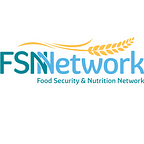Updating the Evidence Base on Humanitarian Food Security Interventions — Share your impact evaluations!
By: Cem Yavuz, Senior Research Associate, 3ie; and Katie Pons, Knowledge, Learning, and Communications Advisor, HAEC
This blog is co-published with 3ie.
With an estimated 300 million people needing humanitarian assistance and protection in 2024, understanding which interventions are most effective is more important than ever. But how do we find evidence on interventions to inform our decision-making and understanding?
In 2022, the Humanitarian Assistance Evidence Cycle Activity (HAEC) worked closely with their consortium partner 3ie to produce an Evidence Gap Map (EGM) on food security interventions in humanitarian settings. EGMs provide a visual representation of the rigorous evidence that exists within a certain sector.
HAEC’s EGM included 146 impact evaluations and 17 systematic reviews on food security interventions in the humanitarian sector. By compiling and displaying this evidence in an interactive format, users can identify both concentrations and gaps in the existing evidence base. While this has been an incredible resource to inform decision-making and highlight areas to focus new impact evaluations, since it was published, the world continues to face ongoing and new humanitarian challenges, from conflicts to climatic emergencies.
Expanding Our Evidence Base
During this time, HAEC funded six new impact evaluations of USAID Bureau for Humanitarian Assistance (BHA)-funded implementing partners working on emergency food security programs. This included two studies in West Africa (Niger and Nigeria) and four studies in Latin America (Colombia, Honduras, and Guatemala). These studies have provided a wealth of new information and insights, filling clear evidence gaps.
To further share this information, HAEC and 3ie are excited to update the EGM to include these studies and others that have been published in the past two years. Together, we’re working to expand the sectors’ understanding of what works in emergency and humanitarian contexts to ensure the effective use of available resources.
Through HAEC’s research experience, the team observed that research generated from a strong collaboration between the research partner and implementing partner was most likely to drive changes in implementation approaches. These partnerships ensure that the evidence produced is directly relevant to the operational needs and constraints of humanitarian interventions. By working closely together, partners and researchers ensure that their findings are not only rigorous but also practically applicable, leading to more responsive and effective humanitarian programs.
Yet, often these operational-level research initiatives go unpublished. This is where HAEC and 3ie need your help!
Updating the evidence base — how you can help
3ie and HAEC are seeking input from policymakers, researchers, and practitioners to share relevant impact evaluations or systemic reviews in emergency and humanitarian contexts — particularly those that are unpublished, forthcoming, or only found in grey literature.
Your contributions will help fill critical gaps in our understanding and drive improvements in humanitarian program design and implementation. Join us in making a difference by submitting your studies, ensuring that every dollar spent on humanitarian aid is as effective as possible.
The original EGM report provides greater details on the exact type of studies included within the EGM, but broadly, they fall under the following categories:
- Early warning systems
- Interventions pre-arranging household finance for disasters
- Food, cash, and other in-kind transfers
- Agriculture and livestock interventions
- Nutrition interventions
- Market-based recovery interventions
- Water security interventions
If you know of any studies that might be potentially relevant to our map, please either comment below, use this Google Form to submit a paper, or contact Cem Yavuz.
Study suggestions are accepted for the EGM through August 31, 2024.
